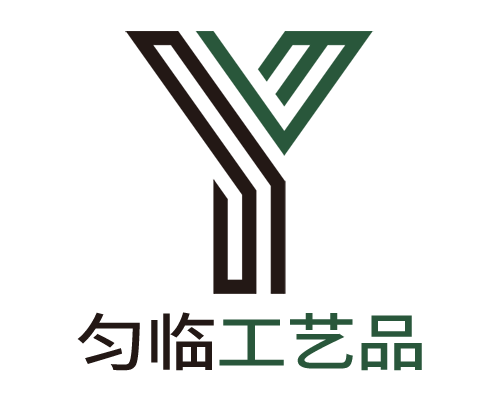Taizhou Linhai outdoor leisure products: why can we break through against the trend?
Release time:
2019-07-05 14:43
On Oct 28, the 8th China (Linhai) Outdoor Furniture and Garden Leisure Products Exhibition opened.
In just a few days, the exhibition achieved remarkable results: 186 enterprises participated in the exhibition, 2015 purchasers attended, including 425 overseas purchasers, and reached overseas intended orders of 14.57 million dollars, and domestic intended orders of 56.6 million yuan, the amount increased by 11.7% and 13.5%, respectively.
Such a set of data shows that although the trade friction between China and the United States last year once cast a shadow on this industry, which relies on foreign trade up to 90%, but now, through the self-rescue of enterprises and government guidance, the industry is gradually coming out of the shadow and recovering steadily.
Data show that in the first three quarters of this year, the export volume of Linhai outdoor leisure products industry reached 7.08 billion yuan, up 12.7% year on year. Linhai outdoor leisure products industry is bucking the trend to achieve breakthrough!
An imported industry
This is an industry whose origins are far from home. It is fair to call it "imported".
From the Guangdong area to undertake outdoor leisure parts processing orders, in the early 1990s, some of the market sense of keen Linhai people to the sun umbrella, outdoor awning, outdoor leisure furniture and other technologies introduced to the local, after the establishment of factories, enterprises.
At that time, the tide of entrepreneurship goes on with great strength and strength. Xie Jianyong, who was in his early twenties, set up a handicraft factory in Xiaozhi. It was a factory, but it was actually a small workshop with several simple equipment, producing wooden clothespins and wooden sun umbrellas.
At that time, the road from Xiaozhi to Linhai City was in poor condition, so the containers could not be passed, so they loaded and unloaded by themselves, and shipped the products to Linhai with small trucks and then packed them into Ningbo. It was not until they moved to urban areas as a whole that they began to double their growth every year. This enterprise is now the outdoor leisure products industry leader Yongqiang Group.
In 1990 spring Canton Fair, Linhai Sun Umbrella appeared in the international market, with sales revenue of nearly 1 million yuan, which is a bucket of gold that Linhai people have dug in the leisure industry.
Since then, the development momentum of this industry is amazing. In 2000, the industry entered the scale of development, and the sales revenue of the industry that year was nearly 350 million yuan.
In 2003, Linhai was awarded "China's Outdoor Leisure Products Production Base", and nine years later, it became "China's Outdoor furniture and Garden leisure products Export Base".
From "production base" to "export base", it takes 20 to 30 years to get to the sea. "In a way, it's an industry that outperforms the blue." Luo Bangren, secretary general of Linhai Leisure Products Industry Association, said that now the outdoor leisure products industry in Linhai has surpassed Guangdong, emerging Yongqiang, Zhengte, Linya and other leading enterprises and a large number of growth enterprises with an output value of 100 million yuan.
It affects the whole body
The source is outside, so is the market.
Linhai outdoor leisure products industry is highly extroverted, the market covers Europe, the United States, the Middle East, Southeast Asia and parts of Africa, of which the North American market accounts for about 30%.
At present, Linhai outdoor leisure products exported to the United States are rattan chairs, Teslin chairs, folding chairs, recliners, folding steel pipe awnings, sunshade, etc.
At the very beginning of the trade friction between China and the United States, the US announced a $50 billion list of additional tariffs, which basically did not cover the scope of customs codes for the above-mentioned products.
But later, the US imposed a 25% tax on China's $200 billion export of goods to the US, and most of the outdoor leisure products exported to the US were shot.
Traditionally, in May and June each year, American outdoor furniture buyers will place orders with domestic suppliers as agreed.
This is the slow season for domestic leisure goods factories, and a number of companies are waiting for orders to stock up for shipment after October.
However, trade friction suddenly escalated, the American buyers did not dare to place large orders.
"The tariff immediately weakened their willingness to place orders. Originally, they placed orders in June, but now they dare not to place large orders. They only dare to place some loose orders in batches to test the acceptance ability of the domestic market." "Luo Bangren said.
In the past, some key enterprises began to purchase materials before placing orders in the US market. They should place orders in advance in the off-season of the whole industry and the period of relatively low raw materials, so as not to miss the rush cycle after the order is placed by the United States. But at this time, the procurement of domestic enterprises also dare not rush to purchase materials.
There is no doubt about the impact of trade frictions.
The leading company, Yongqiang Group, sells almost half of its exports to the United States.
Zhengte shares have nearly $5 million in exports on the list.
Linasia shares of the United States market exports account for 20 percent of the impact of tent products, orders fell by a third, "and the reduction is a large order." Company brand promotion department manager Shan Jun said.
It is the big companies that have been hit. Small businesses, by contrast, are less involved because the main markets are in Europe and Southeast Asia.
"The impact is big, but the impact is narrow." When taxes are raised, he says, buyers will pass on the increase to domestic consumers, raising prices. As a result, it is bound to reduce the willingness of American consumers to spend and reduce sales. Buyers can't place orders and dare not place orders. And domestic outdoor leisure products companies, due to less or no profit and scale down, reduce profits.
Divide the cake and make the cake
Under the agitation and anxiety, enterprises are looking for a way out and self-help.
Bargaining with the United States, sharing the additional tax is one of the many enterprises thought of first.
"The contract signed by the company with foreign sales mainly implements FOB price, and the tariff is borne by the customer itself, which will eventually be transferred to the end consumer. We also cut some prices." Yongqiang Group relevant responsible person said.
In accordance with the idea of "stabilizing the base and expanding the space", Zhengspecial Shares took the initiative to reduce the price of goods involving increased export tariffs by 5% to stabilize the original orders.
And in the United States parasol industry, foreign trade salesman Liang Yan said, their main parasol, the United States export orders accounted for about 20%, after the start of trade friction, the United States orders have not been placed, and then negotiated with the United States, according to the exchange rate pricing, and the price down 1.5 percentage points, "the unit price down, but this year's order quantity still saved."
In addition, many companies are once again making inroads in Europe.
In the Cologne Exhibition in Germany in September, Yongqiang and Zhengte participated in the exhibition and achieved good results.
"For so many years we have focused on the U.S., but now we are putting more effort and manpower into Europe." Yongqiang Group executive director Pang Yingying said.
But the pie is so big, other enterprises are rushing to come, "profit down a few points, we can withstand, other small enterprises may not be able to withstand." Pang Yingying said.
More people aim at the domestic, "dividing the cake" at the same time is also innovating, making the cake bigger.
"Outdoor products are not indoor products after all, domestic consumers have not developed outdoor leisure habits, the domestic market accounts for a small proportion, from the whole industry to see domestic sales only 10%." Luo Bangren said that with the upgrading of consumption, the rise of domestic outdoor leisure, to a certain extent also stimulated the domestic outdoor leisure products market, promising.
"In the next five to eight years, the domestic market will definitely stand up to a Europe." Chen Yonghui, president of Zhengtestock, said the company set up a wholly-owned subsidiary, Zhejiang Qingtian Garden Furniture Co., Ltd. to provide one-stop outdoor leisure services for domestic customers and absorb cost pressures with high added value. Now the company sells a quarter of its products to the domestic market every year.
"In the past two years, we have set up a new e-commerce company and a plastic products production workshop, both measures taken for the domestic market." Linya share brand promotion department manager Shan Jun revealed that they use plastic, marble and other materials to develop products suitable for domestic high school low-end consumption levels, domestic sales last year has been nearly 100 million yuan.
Root or transfer?
The reporter learned that, in addition to transferring the market, some enterprises plan to transfer their production capacity to a third country, mainly Vietnam.
Recently, some enterprises have sent senior executives to Vietnam, Cambodia to invest in plant inspection.
Why did you choose Vietnam? Because the industrial chain has taken shape here." "Land rents in Vietnam are comparable to those in Vietnam, but labor costs are 30 percent lower," he said.
However, there is still discussion within the company about the idea of shifting capacity.
"Even if you move to Southeast Asia, you have to move the wood products industry, but you have to keep the metal products at home because there are not enough supporting facilities, steel, aluminum and other supplies." The relevant person in charge of Linhai outdoor leisure products enterprise believes that the outdoor leisure products industry is obviously seasonal, busy season has the demand for workers to work overtime, and there are certain requirements for manual technology, which is missing in the third country.
The reporter learned from industry associations and many enterprises that the upstream and downstream of Linhai industrial chain is relatively mature at present, and many entrepreneurs also have the complex of "taking root in the local area". As a traditional labor-intensive industry, it is easier to be involved in the whole body. They also hope that relevant government departments can properly solve the problems of enterprises in employment and land.
Other Information



